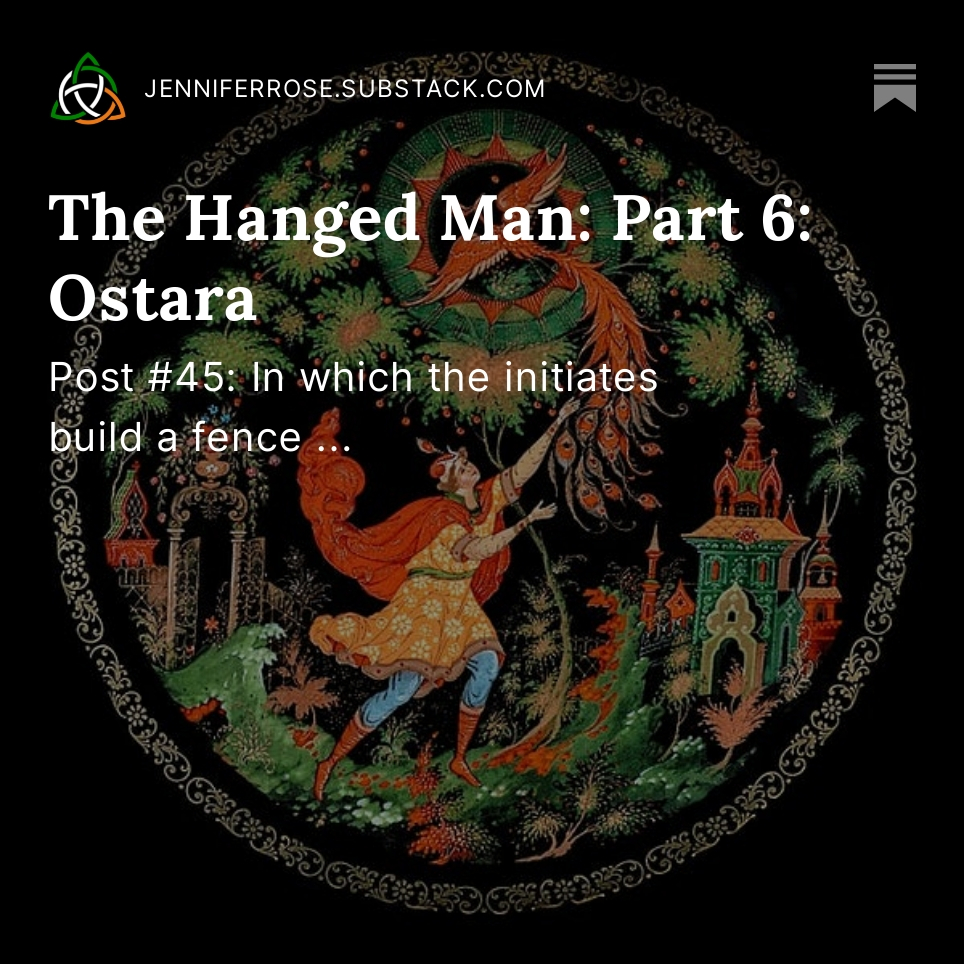by Jenny Rose | Jan 28, 2023 | Emotional Intelligence, Feelings
As I write this, I have just returned from a long journey across the country and into my past. I’m home again, but the journey is not over and I expect to retrace my steps back and forth for some undetermined length of time.
The physical journey, however long, is nothing to the internal journey I’ve undertaken through my memories, family dynamics and history, and so much of what has shaped my life and experience.
Before I left, I came across this poem by David Whyte:
Here in the Mountains
There is one memory deep inside you.
In the dark country of your life
it is a small fire burning forever.
Even after all these years
of neglect
the embers of what you have
known rest contented
in their own warmth.
Here in the mountains,
tell me all the things
you have not loved.
Their shadows will tell you
they have not gone,
they became this night
from which you drew away in fear.
Though at the trail’s end,
your heart stammers
with grief and regret,
in this
final night
you will lean down at last
and breathe again on the
small campfire of your
only becoming.
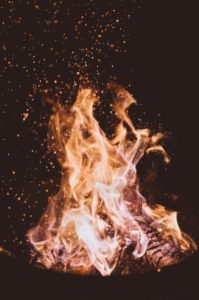
Photo by Joshua Newton on Unsplash
“Tell me all the things you have not loved.” This is an invitation I’ve never heard before. My focus has been on gratitude, on reframing, and on finding something good in every situation. I call myself a pessimist rather than an optimist, though I do leave windows and doors open for good things to happen while preparing for the worst.
My friends and I talk at work about the way we avoid “complaining.” A male coworker was taught as a child to refuse to give way to pain and illness, to work through it silently and privately without “complaint.” Is complaint the same as acknowledgment? I’m not sure. Three of us, all women, are more comfortable acknowledging our struggles and distress than our male friend, but none of us want to hear ourselves “whining.” Is whining the same as acknowledgment? I’m not sure about that one, either.
Because of my own confusion and blurriness around the terms we use and the cultural pressure towards toxic positivity, speaking about the things we have not loved is a jarring proposal. I carried it as I traveled on cars and buses, airport shuttles and airplanes. I hardly wrote at all over the last week. One journal entry by hand on the plane and the rest of my notebook filled with to-do lists, notes, names and numbers.
But I thought about things I have not loved.
It’s not just the invitation, though. It’s the way Whyte suggests all the things we have not loved are the background against which our lives are pinned, the shadows defining the light. I think of the night sky, gleaming with stars. What would the stars be without the blackness around them? I think of candle flames, fireflies, a lone campfire in the wilderness in the black night.

Photo by Jeremy Thomas on Unsplash
And isn’t it true that the things we have not loved don’t go away? Don’t they stay with us more inexorably, in fact, than the things we have loved? It seems so to me. Thus the fear, the drawing away, the heart filled with grief and regret. But at the core of our lives perhaps there is a small fire, patiently burning, waiting for us to come to our trail’s end. I think some would call the small fire God.
I realize one of the largest things I have not loved is love. A strange thing to realize, and a strange thing to say, I know. But so often my love has been helpless. The strong bonds, history, and feeling (all of which I mean by “love”) I feel for my parents, my brother, and my sons have been the greatest sources of pain in my life. Five vast, dark, wildernesses surrounding five campfires, these five who are flesh of my flesh, blood of my blood. These five who I could never stop loving, even if I wanted to. No matter how great the shadows around the fires, the flames burn, warm, beautiful, cleansing, regenerative. Often, I wish I could stand just outside the firelight, unseen, and simply love without fear, without pain, without wishing to be loved in return. But I do draw away in fear from the heat, the flame, the passion of the fire. I cherish the fires and would protect them with my life, but I fear them, too.
I have not loved the trauma and abuse that has shadowed what I love. I have not loved my disillusionment or the terrible choices I’ve made in building boundaries and learning to love myself. I have not loved my feelings of loss, insecurity, scarcity, and exile. I have not loved my pain and grief. I have not loved learning to let go.
I did not love walking into my mother’s home, the place where she has lived her self-imposed solitary journey into dementia and inability to care for herself. I did not want to follow her trail into the darkness of fear and denial, marked with soiled clothing and bedding, desperate and increasingly nonsensical and illegible notes and reminders. I did not want to go through drawers and cupboards of vitamins and supplements; over-the-counter remedies for pain, sleep, memory loss, skin problems and digestion issues. I did not want to fill trash bags with worn-out but never discarded clothing and shoes, a thousand used emery boards, outdated products and food.
I did not love going through every stitch of her clothing, sorting, washing, labeling with a laundry marker and packing it all to take to her new home in a memory care unit. The day after I carefully loaded her dresser, newly cleaned and placed in her room, we visited and found she had dumped every drawer into her laundry basket. She was “packing” to go home.
I did not love doing any of it. I did not want to do it. It broke my heart and filled me with futile guilt and shame. But at the center of every bag of trash, every bag and box to be donated, every clean drawer and cupboard, burned the small fire of my love for my mother. Inescapable. Inexorable. In a strange way, all the things I did not love were fuel to keep that fire burning. The more shadows I found under beds, in closet corners, in drawers and cupboards she forgot she had, the brighter the fire burned. My pain and pity, my anger with her lifelong pattern of denial and rejection of any help or support, made the fire burn higher. To tend the fire is to face the darkness.
And I would not have the fire go out, though I feel torn into pieces by its presence.
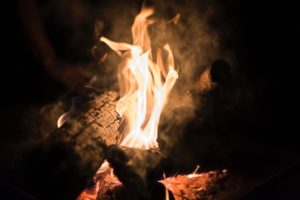
Photo by Josh Howard on Unsplash
It’s been a dark week, a week of deliberately moving into the things I have not loved. Drawing back was not an option. I could only step into the void. But the darkness has held a thousand small flames. The faces of old friends, both mine and Mom’s. Her animals, once so beloved but now forgotten by her, rehomed and doing well. A hundred acts of kindness and generosity. Help with moving furnishings into her new room. A cherry pie. Hugs and tears. The good-hearted friendliness of dogs. Constant support. Texts, emails, phone calls – all messages of succor and sympathy for me and my brother, for Mom. The friend who cares for the plants. The friends who keep an eye on the house. The friend who took a load to Goodwill for me. The friend who will take out the mountain of trash in the garage. And, when I came home, the arms of the friends who welcomed me back.
The shadows and the light. The things I have not loved cradle the things I do love. I am so weary I cannot begin to unravel the paradox. Perhaps it cannot be unraveled, only accepted and experienced. Perhaps Mom is wandering in her own dark wilderness, seeking the small campfire of her becoming, and when she finds it, leans down to breathe upon it, she will at last know peace.
Questions:
- Share three things you have not loved.
- Do things you have not loved persist in your life? What creates a background for what you do love?
- What is the difference between complaining (whining) and acknowledgment? Do you believe it’s wrong for you to admit to personal struggles?
To read my fiction, serially published free every week, go here: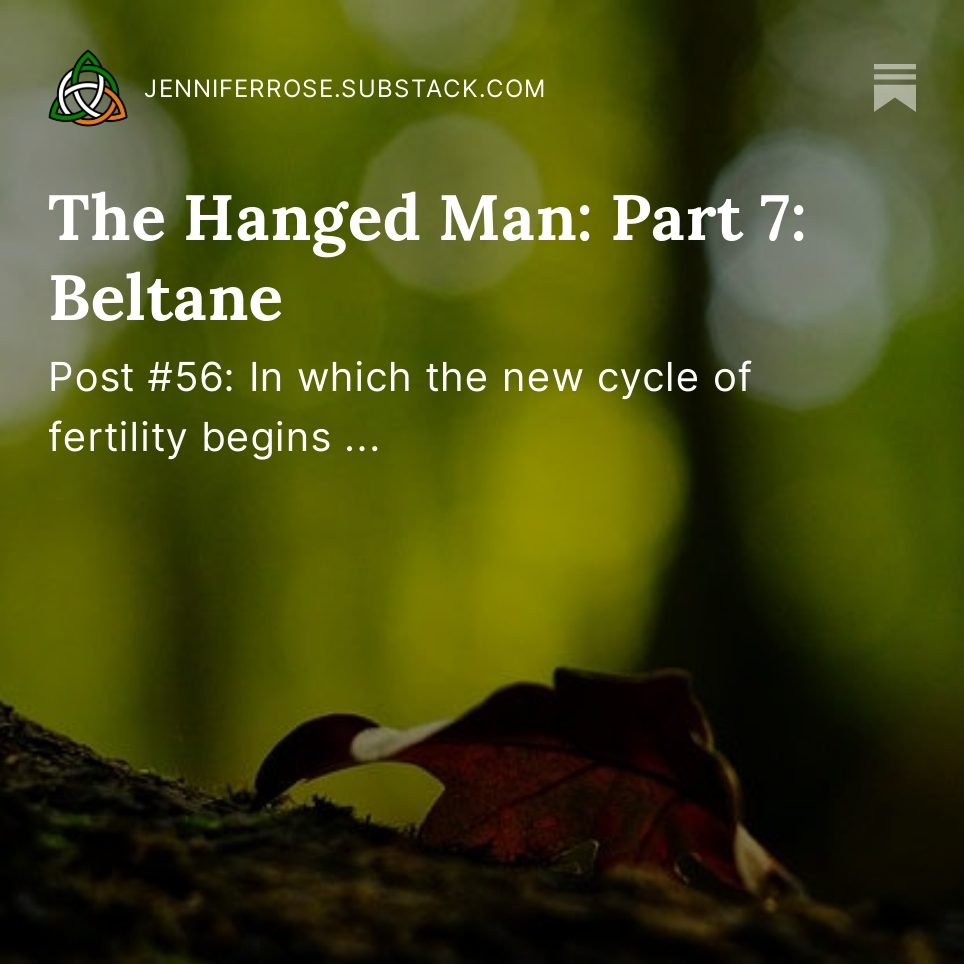
by Jenny Rose | Jan 14, 2023 | A Flourishing Woman, The Journey
When I am struggling, I frequently find myself gifted with exactly the idea I need to help me step back, take a breath, and reframe. It always feels like a miraculous bit of synchronicity. When it happens I remember to have faith in myself, faith in the vagaries of life. I remember I can make choices, whatever the situation.

Photo by NASA on Unsplash
It happened this morning, unexpectedly, in a post I read by an astrologist I follow. This astrologist is unlike any I’ve ever read before. To begin with he’s intelligent, but not in a grifter, let-me-manipulate-you sort of way. His interpretation of astrology is interesting and provocative. I don’t read him to find out what color to wear today, but because his lens is so fascinating.
This morning began at 4:00 a.m. Which is better than yesterday morning, which began at 3:00 a.m. with me hunched over in bed scribbling yet another list. Really important stuff that had to be recorded at three in the morning. For example:
- E birthday card for friend (We share the same birthday this week; clearly this was an urgent reminder.)
- request time off (formally, I mean. My absence is already covered by a teammate. But I might forget I have to travel to Colorado to put my mom in a memory care unit next week, and if I don’t properly request time off in our software system the sky will fall, I’ll be fired, I’ll give my director and friend (see above) extra work and she’ll hate me, I won’t get paid …)
- tape measure (We are visiting the facility we hope to check Mom into before going to her house. How will we know what furnishings to bring for her? How will we know how much wall space there is? Clearly, I need to pack a tape measure, carry it on the bus, on the hotel shuttle, on the plane, in the rental car. There are no tape measures in Colorado.)
- soap dish (We have an informal lost and found at the rehab pool facility where I work. Mostly what gets found are toiletries in the locker room and showers; these are rarely claimed. I need a soap dish, and one is sitting in our lost and found waiting to be retrieved. If no one comes to get it, I want that soap dish. A very important detail that must not be forgotten, as plastic soap dishes are rare and valuable. Soap dish or sleep? … obviously, soap dish is more important.)
- waterproof mattress cover (Mom’s new room will not accommodate a queen bed, which is the only size she has. We have a twin bed for her, but she’ll need new sheets and bedding. I mustn’t forget to get a couple of waterproof mattress covers …)
- Etc.
But where was I?
Oh, right, the astrologer’s post about Mars and planets and friction.
Friction. Pressure. Oh, boy.
I confess I didn’t read the whole article with much attention, mostly because I don’t have much focused attention right now for anything, but this caught my eye:
Mars Positive: Courage and willpower applied consciously towards a specific goal.
Mars Negative: Impatience and misapplied force.
Misapplied force, anyone? I had to laugh.
At that point it was time to get up and make breakfast, so I put the laptop aside. While I cooked, washed my face, cleaned out the cat boxes, and watched the cold dawn light I thought about friction. Pressure. Birth. Transformation. I thought about polished rocks and pearls. I thought about diamonds and fossils and geologic forces and time. I thought about youth and plasticity and vitality, followed by old age, desiccation, brittle bones, weariness, atrophy.

Photo by Josh Howard on Unsplash
Friction can produce fire — cleansing, regenerative, alchemical fire.
I remembered life is full of friction and grit. Experience can smooth our edges, soften our rigidities and certainties, blur our idealism and mellow our arrogance.
I remembered, in short, I can choose to avoid and resist friction (and mostly I do), but sometimes the only way out is through.
This is one of those times. A camel-through-the-eye-of-the-needle time. A time when the right thing to do is the thing I most want to avoid doing. A time when I want to argue with reality. A time when I have chosen and am now resigned to everything that choice entails.
In exactly a week from the minutes I sit writing this draft I’ll be on a plane heading to Colorado to do an unthinkable thing: meet my brother and one of my sons and transition my mother to a locked memory care unit in a place she’s never been before with people she doesn’t know (not that it matters, as she no longer remembers the places or the people she has known) before getting on another plane to come back to my life in Maine.
Even as I write it, it doesn’t seem real.
I wish it wasn’t real.
For the first time this morning, though, while the new day dawned and the cats and I ate our respective breakfasts, I thought about the other side of this narrow tunnel, this birth canal. There will be another side. There always is. What is happening to me, and to the rest of my family? What is happening, locked away, invisible, irretrievable, in Mom’s experience? I’ve done hospice work, and I’ve witnessed how mysterious and beautiful the end of life can be. This event ripples out into the rest of my family system, sanding, smoothing, transforming. Friction is change. Pressure reshapes us. Can I relax, just a little? Can I let it happen the way it needs to? Can I be satisfied I’ve made the choices and decisions I’ve needed to and let my feelings wash me where they will? Can I surrender to the cars, the buses, the hotel shuttles, the planes, the journey, in fact?
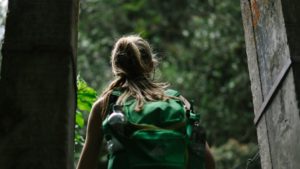
Photo by Dan Gold on Unsplash
Could I set aside soap dishes and birthday cards, payroll issues, tape measures, waterproof mattress covers; the potential for delays, bad weather, mechanical breakdowns, crowds, jammed traffic, overstimulation, viruses, and the general unpredictability of life and people and trust there will be sleep, there will be food, there will be a bathroom, there will be a minute to sit down, there will be help, there will be tears, and I will figure out how to print my boarding pass at a kiosk in the airport?
Well, I could try, at least. I’m willing to try.
There is friction, and friction is magical.
I’m publishing two weekends in a row right after I said I was moving to biweekly posting. But then the trip to Colorado was upon me, which is the weekend I’m scheduled to publish. So I’ll write again on the other side of all this friction. Maybe by then I’ll be a pearl. Or write pearls of wisdom?
Questons:
- What’s the biggest source of friction in your life? What is it shaping you into?
- What wakes you up at 3:00 in the morning?
- Do you avoid friction or welcome it?
- What helps you lubricate life’s friction?
Leave a comment below!
To read my fiction, serially published free every week, go here:
by Jenny Rose | Dec 24, 2022 | Connection & Community, Emotional Intelligence
I’m continuing to play with blind journaling. It’s most useful when I notice physical and emotional signs of anxiety and speeding but am not sure what’s triggered them. Taking off my glasses, turning off the light (I journal early in the morning while it’s still dark), and concentrating on feeling out the roots of my symptoms leads me to the source of my distress. Doing this when I first notice symptoms interrupts the spiral of anxiety that might otherwise follow and increase during the day.

Photo by Nicole Mason on Unsplash
It works much better than distraction, like playing solitaire, which I’m still refraining from doing.
I think it will also be a great tool for concentrated writing time when I want to explore a prompt or address a specific scene or exchange of dialog.
I’ve been wondering this week how things might change if we were blind. All of us. A blind world.
A significant part of our brain is tied to interpreting the endless barrage of information coming through our eyes. Not only does life spool before us every waking hour, we add unmeasurable visual information as we look at our screens and consume media.
I notice how much simpler, less stimulating, and less distracting life is when I shut my eyes. There is a cool, spacious space between sleep and eyes open. It’s quiet in that space. I’ve written about visual noise before, which I’m particularly sensitive to. When I close my eyes, I immediately feel quieter. My attention is not demanded by visual input. I can come into presence with myself more easily. No surprise we meditate with our eyes closed.
My favorite sense is touch. Vision can lie, as can words we hear, but touch is honest. I can read pain in the way a friend holds her body, in her skin color, in a thousand subtle nonverbal visual signs if I pay attention, but touch, oh, touch gives me a flood of information that cannot be faked or hidden. When I practice healing touch, I often do it with my eyes closed. As a lover, I prefer no visual input, not because I’m hiding or uncomfortable with intimacy, but because touch is for me the most powerful and ecstatic love language. Readers of my fiction will see that reflected clearly in my writing.
It is through touch I have communicated my love and affection for animals; for children, lovers, and friends; for the natural world. My empathy and compassion flower with touch, as do tolerance and respect. In touch, in breath, in heartbeat, we are all connected. Flesh over bone. Hair. The landscape of a living body. Texture of stone, wood, water, earth, ice, plant.

Photo by Liane Metzler on Unsplash
Though blind, we would still hear. We could speak and listen. How uncluttered would our hearing be if we couldn’t see who we were speaking to, and if they couldn’t see us? No more written social media. No more selfies and digitally altered pics. No more dating profiles with pics. We’d be forced to actually speak to one another, whether on the phone or face to face. I suppose speech recognition AI would immediately fill this gap, though. No emojis – we’d have to communicate our feelings in real words. Barring AI, our jokes would sound like jokes. Our scorn would sound like scorn. Our sympathy would sound like sympathy. Our speech patterns and intonation would convey meaning in a way words on a screen never can.
It would be a world in which guns were useless.
We would be unable to see clothing, MAGA hats, skin color, tattoos, piercings, or anything else to which we attach sweeping generalizations or bigotry. We could assess only voice, touch, scent.
Scent is so much subtler than vision we often ignore it, but this sense can give us lots of information. We might smell of food, alcohol, cigarettes, cannabis, unwashed skin and clothes, urine or feces, sweat, sex. Sometimes sickness has a smell. Poor dental hygiene has a smell. A clean, healthy, vigorous person smells different than a dirty, ailing person. Smell, like touch, doesn’t lie. A closet drinker or smoker would be obvious, in spite of their words of denial. Ironically, without vision much of our cover would be blown.
If the whole of humanity was struck blind, capitalism as we practice it would come to an end. We would no longer be bombarded with images of products or people (or people as products). We would no longer compare houses, cars, things, body shapes, eye colors, hair colors. Most of the ways we proclaim our identity to the world would be swept away. Many of our perceived differences would literally vanish. We would no longer be burdened with visual standards of ugliness or beauty. In one stroke we would be pared down to our shared humanity: our choices, our behavior, our ability to cooperate and socialize with others, our skills, our integrity, our feelings. Visual pretense and presentation would no longer shield us; we would cease to be manipulated and our power to manipulate others would diminish significantly.
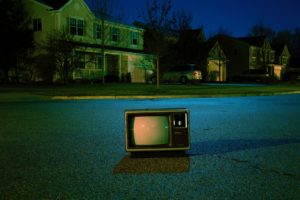
Photo by Frank Okay on Unsplash
No more NFT trading cards.
What a shame.
As I work with this exercise of imagination, I feel sad. Vision is such a miraculous gift, and beauty so nourishing. But we don’t always use it as a gift. We use it as a tool with which to make money, with which to hurt others, and with which to hurt ourselves. Most of us take our visual-oriented culture for granted and never give it a thought at all.
I also feel afraid. Our visual sense is so chaotic, so inexorable and powerful; we rely on it for most of our choices and beliefs. But vision lies. Increasingly, it misleads. AI is becoming more effective. Deep fakes are harder to spot. Advertising is ever-more powerful. And we nestle more and more deeply into the matrix, seduced and shackled to the surface of things, the presentation.
What would it be like if the world was blind? Would we then access deeper levels of our shared humanity and connection to one another?
Imagine My Surprise
Imagine my surprise,
sitting a full hour
in silent and irremediable
fear of the world,
to find the body
forgetting
its own fear the instant
it opened and placed
those unassuming hands
on life’s enduring pain,
and the world for one
moment
closed its terrifying eyes
in gratitude.
Saying,
“This is my body, I am found.”
–David Whyte
On a personal note, I’ve decided to transition to posting on Harvesting Stones biweekly rather than weekly going forward. I’ll continue to serial publish on Substack weekly.
Questions:
What is your favorite sense? Why?
What sensory input do you trust the most?
How would you feel about your body if you had never seen yourself?
How would you feel about your body if you had never seen another’s?
Leave a comment below!
To read my fiction, serially published free every week, go here:
by Jenny Rose | Nov 6, 2022 | Boundaries, Connection & Community, Emotional Intelligence
I’m sitting at my desk this morning, the sun shining on the wet grass scattered with wrinkled leaves outside my window. I’ve just been running errands. My desk, unusually, is piled high with scraps of paper, notebooks, my calendar, receipts, to-do lists, and a new binder and paper I just bought to help me organize. My big grey tabby, Oz, is busily knocking everything off the desk and chewing on a new plastic package of AAA batteries because I won’t let him lie on the keyboard.
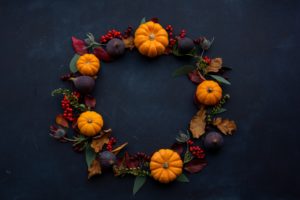
Photo by Joanna Kosinska on Unsplash
I was sick most of October. I’m finally on antibiotics; I can breathe, and consequently think, more clearly. A week ago an aged family member living halfway across the country with whom I have a lifelong troubled history became openly unable to manage their life and then fell and broke their hip in quick succession.
Sometimes life requires us to muster every bit of learning, wisdom, strength, courage, insight and experience we have in a catastrophic practical test, like a nightmarish pop quiz. This is one of those times. It helps to look at it that way, because I know I have (somewhere) everything I need to manage this situation with all my considerable compassion and clear-sightedness.
This last week I let go of everything. My living space needs to be cleaned. I desperately want to change my sheets after so many nights crying, coughing, and trying to breathe adequately enough to snatch some sleep. I’m longing to escape my phone and laptop, sit in the sun, read, relax, do some gentle gardening (still like late summer here in Maine). I haven’t even started on this post yet, a thing I usually do during the week.
I made it to work. I made it to the doctor for antibiotics. I stayed hydrated. Aside from reactive crisis intervention and coming to terms with what’s happening long-distance, that’s about all I can say for myself. But now, at last, I’m beginning to stir feebly into some kind of normal experience again.
It’s a relief.
I opened this document and started typing without any plan whatsoever. I don’t have to post today on this blog. It wouldn’t matter if I didn’t. I suppose I’ve grown used to the opportunity to organize my life into words every week.

For nearly a decade I’ve worked intensively on boundaries. Ten years ago I knew nothing about personal boundaries. My life was accordingly dysfunctional. It was hardly my life at all, in fact. It was everyone else’s life. I’ve written extensively about boundaries on the blog, and the concept of the difference between your experience and mine is woven heavily into my fiction. I’ve practiced building and maintaining healthy boundaries in the last years, though I’m still far from perfect in working with them.
But I’m getting better all the time.
When we are prevented from building appropriate psychological boundaries as children, we never create an internal world in which we can rest, center, and ground. We become an image in someone else’s mirror, a paper doll, a nonperson.
Nonpeople have no needs, no credibility, and no permission to express themselves as individuals. It’s worse than no permission, though. Nonpeople are severely punished for any independent feeling, need, or expression. Nonpeople have no private life. They’re not allowed to say no.
This kind of relationship, sadly, is often invisible to onlookers. From the outside, such connections look bonded and mutually adoring. The public view never sees the anguish involved in a relationship without boundaries.
Anguish on both sides. Those who seek to prevent others from having boundaries are deeply damaged, insecure people whose own boundaries were likely brutally violated and torn down. They are terrified of being alone, and a boundary makes them feel utterly outcast and rejected.

Photo by Nicole Mason on Unsplash
But for me, boundaries are sanity. They’re safety. They allow the power to choose and respect to flow both ways. They say, “My self is worthy. Your self is worthy. We can choose to love one another as well as ourselves.”
Reshaping a primary relationship with no boundaries into one with healthy ones is excruciating. It may not be possible. I haven’t decided it is impossible, but I wonder. One of the hardest things about it is how it looks to outsiders, who don’t understand why all the harsh edges and corners are suddenly showing in such a perfect, loving relationship, the kind we all want, the kind we should feel lucky to have.
Another feeling I’m present with just now is the nauseating swing between relief and guilt. All secrets, painful family secrets included, have an uncomfortable way of being revealed. Even if everyone involved conspires to keep the secret, eventually, often in a you-couldn’t-make-this-stuff-up kind of way, someone or something like a terrible series of events exposes it.
I’ve posted about such ideas as loyalty, responsibility, duty, gaslighting and projection. The bars of prisons built by family systems are forged out of concepts and strategies like these. But when a secret escapes the bars melt away and we’re suddenly free. We’re not alone in solitary anymore.
Some stranger says to us, “Oh, yes. I’m familiar with that dynamic. I’ve observed that behavior. I understand,” and we realize we are not crazy. We are not mean and ugly. We are not hateful.
We are not alone.
The relief of validation is indescribable. So is the guilt accompanying the relief. When we guard secrets, literally with our lives, for the sake of protecting the dignity of a loved one and the secrets are revealed through no fault of our own, we also feel exposed. The mere fact that we were the designated secret keeper means we failed.
Our love and the cost of bearing the secret’s burden for so long doesn’t matter. The least we can do, the least we can do, is remove all the boundaries we’ve erected so carefully and painstakingly and once again give up our lives, our freedom, our selves. Our loved one’s anguish should become our anguish, their pain our pain, their limitations our limitations. If necessary, their death should be our death. Because we betrayed, we let them down, we failed.
The secret got out.
I can’t see very far ahead. It’s not useful to gaze at the road behind. I’ve already walked it and everything is different now, the people involved and the situation. Right now I know where I am. I can see the next steps. This is a new path, one I’ve never taken before. It’s a new script, a new experience. I’m working on releasing my assumptions. I don’t know what will happen next. I can predict, but predictions make me tired. What I have is right now, today. I know what I will do today, both in my personal life and to manage my loved one’s situation.
This time I will find a way to inhabit my boundaries and support my loved one without sacrificing one for the other. I will make phone calls, send emails, get myself organized to do whatever I can long distance and prepare to travel in case of need. I will grieve.
I will also write, get outside, do some laundry, maybe take a nap, and work on recovering my health, because mine is the only life I can live.
To read my fiction, serially published free every week, go here:
by Jenny Rose | Oct 29, 2022 | Emotional Intelligence, Feelings, Love
Except I’m not. Balancing, I mean.
A few weeks ago I came across a quote: “Grief is just love with nowhere to go.” Backtracking through multiple sources, I ran it down to a woman named Jamie Anderson who wrote it in her blog, which is now gone. The quote went viral.

Photo by Joshua Earle on Unsplash
It hit me right in the heart.
I’ve written previously about my struggle with intense love that is not received. I don’t mean unrequited romantic love. I mean flesh-and-bone love, blood love, the helpless love and connection we feel for family.
My strategy all my life has been to divert the love I feel but can’t give to the intended recipient (at least not in a way I feel they receive and believe in it or even want it) to others who do need and want it. This practice relieves some of the pressure in my heart, but there are several ways it can go badly wrong. Plenty of people in the world will suck up all the love, attention, and support we give them, but have no thought, or perhaps no ability, of returning it. In this case, my painful, overfull heart becomes withered and empty and I have to detach the vampire I’ve attracted.
I’m not looking for a place to dispose of my love like it’s a worn-out sock. I’m looking for a place where it does some good. Because that’s at the heart of feeling love one can’t give – the futility of it. What’s the point of love if we have no place to give it, if love has nowhere to go?
There are places where I feel my love has been useful. Animals. Children. Hospice work. Emergency rescue work. But, aside from animals and my own children, none of these are intimate relationships sustaining me day-to-day. Animals, sadly, have shorter lifespans than we do. Children, inevitably, grow up and find their own lives, which may or may not include us.
I’ve been thinking about this quote for several weeks, intending to blog about it at some point, but always turning away from it into other subjects. It hurts to think about it. I know intellectually writing about pain helps, but loyalty to those who refuse my love stops me. Or maybe shame? Or maybe guilt? (If a family member won’t accept our love, surely the logical conclusion is we’re a terrible person?) Also, I don’t want to hurt anyone’s feelings, or be unfair, or humiliate another person.
I can always find something to write about. I’ve been posting weekly for six years. But there’s much I do not write about. Too painful. Too intimate. Too risky. Too messy.
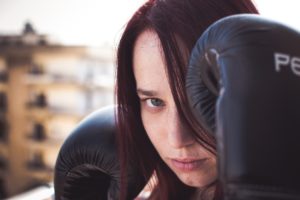
Photo by Jason Blackeye on Unsplash
Sometimes life is like a boxing match. I have good stamina, and I’m dogged as hell. I’m organized and efficient. I try to think clearly about my choices. I’m thoughtful. But every now and then life knocks me down. Hard.
Usually I cope with vigorous exercise, writing, getting a good night’s sleep, and processing with a friend. I get back on my feet and keep going.
But every few years the blows keep coming, hard and fast, unexpected hooks and jabs.
This has been one of those times. I’m nursing my third upper respiratory infection in four weeks. Not COVID, but one of the many other plagues circulating this fall. I’ve once again pulled out the essential oil, the powdered vitamin C, the elderberry and echinacea tea, the nasal spray, the cough and cold medicine. I don’t usually take medication of any kind, but on this third round I feel so bruised and battered I’m choosing to. I’m tired out.
In between this virus, which arrived Thursday night, and the last one, which departed Monday, we discovered our dirt-floored cellar was ankle deep in water due to several inches of recent rain which caused some flooding. It’s going to take more than a thousand dollars to fix it.
Then, yesterday (Can it only be yesterday? It feels like weeks.) I was informed about the illness and injury of a family member, one of those people I love most in the world who is unable to receive it and has amputated me from their life. Now, a long way away from me as I sit here in Maine with a Kleenex box, another family member (another of my dearly loved ones) is carrying the whole situation on their shoulders: the hospital, surgery, legalities, finances, paperwork. My presence would only exacerbate the situation and make everything worse. I know it. The family member managing the crisis knows it.
So here I sit, wretched, broke, sick, and I can do nothing – nothing. A lifetime of petrified love weighs like a stone in my chest. It has nowhere to go. It never has. It’s not useful. It’s not wanted. But I can’t stop feeling it. It’s part of me.
And I’m down for the count. I’m all the way down and nothing in me is ready to get back up. My eyes are swollen. I can’t stop crying. I don’t know where the cold begins and the grief ends. All this grief, a lifetime of grief. It feels endless, bottomless. I don’t think there are enough tears in the world to wash it away. I can do nothing but wait for news and try to be a long-distance support to the one who will accept my support. I can’t seem to get and stay well. I can’t fix the cellar. A plumber in hip boots with a new sump pump will do that early next week.
How can the truest, deepest love we feel be refused and rejected?
Rhetorical question. I don’t expect an answer. I’m sure I’m not the only one who has ever asked that question. Some things just can’t be understood. They’re not fair. They’re not explicable. They’re just life. I learned some time ago to cease arguing with what is.
And what is, right now, is grief. I can’t contain it, control it, avoid it, distract myself from it. I won’t share it, except in words. I’m simply letting it wash through me, surrendering to it. Maybe that’s what I need most today. Maybe the laundry, emptying the trash (all that soggy Kleenex), my usual weekend posting and publishing, raking leaves, dumping the compost, washing dishes, and all the rest of it doesn’t matter. Maybe I can’t get back on my feet until I’ve chosen to just stay down first.
How long do we have to cry to drain a lifetime of grief?
Don’t tell me. I don’t want to know.
This is not my usual kind of post, but it is a stay down, raw, naked one. It’s what I’ve got this week. It’s the best I’ve got.
On another note, I am expanding the site. I’m adding excerpts from my books to The Webbd Wheel page. Scroll down past the overview for the excerpts. If you’re intrigued, you can go to my Substack page and read for free as I serial publish my fiction. You’ll find extensive archives, so you can read from the beginning if you wish.
To read my fiction, serially published free every week, go here: 